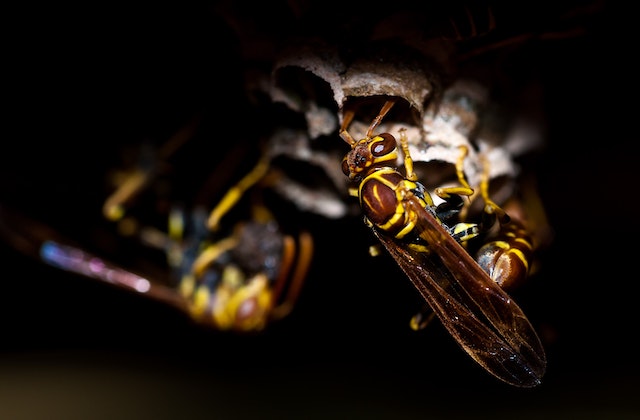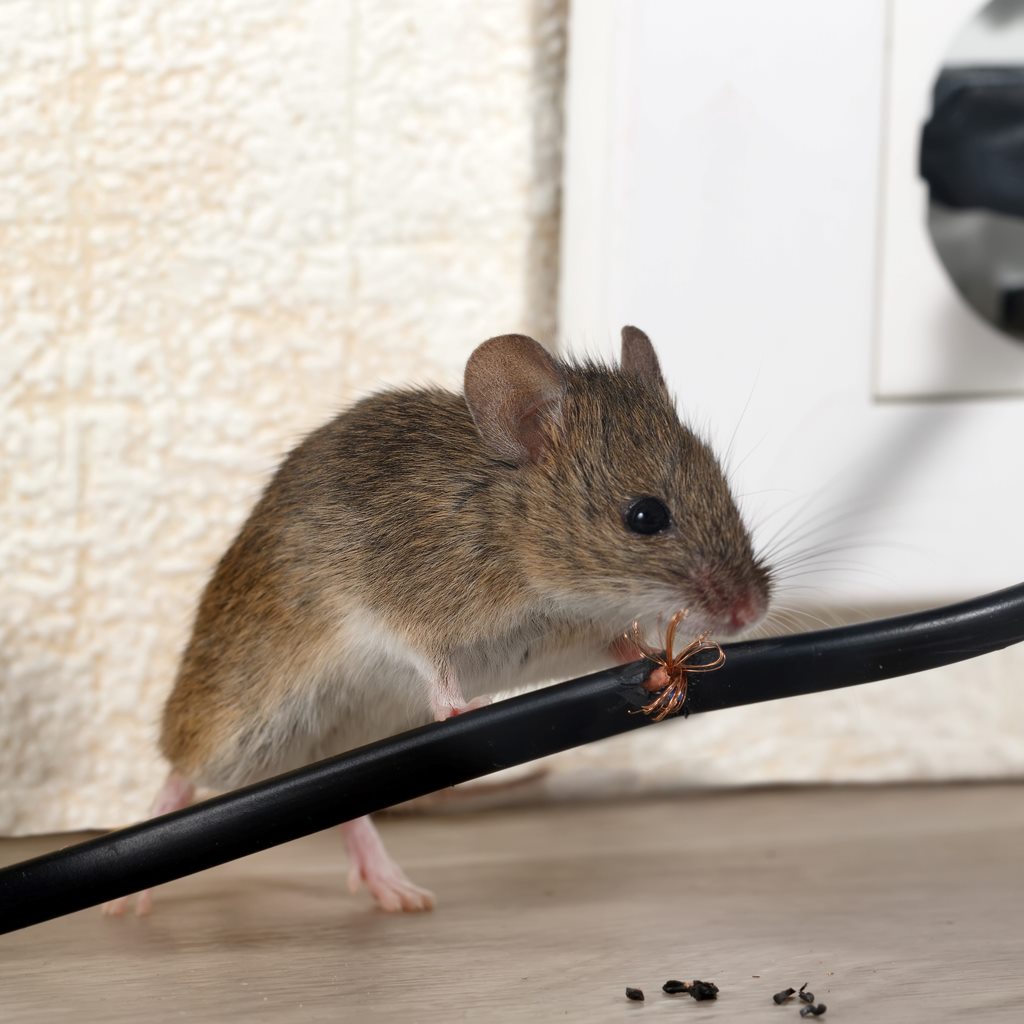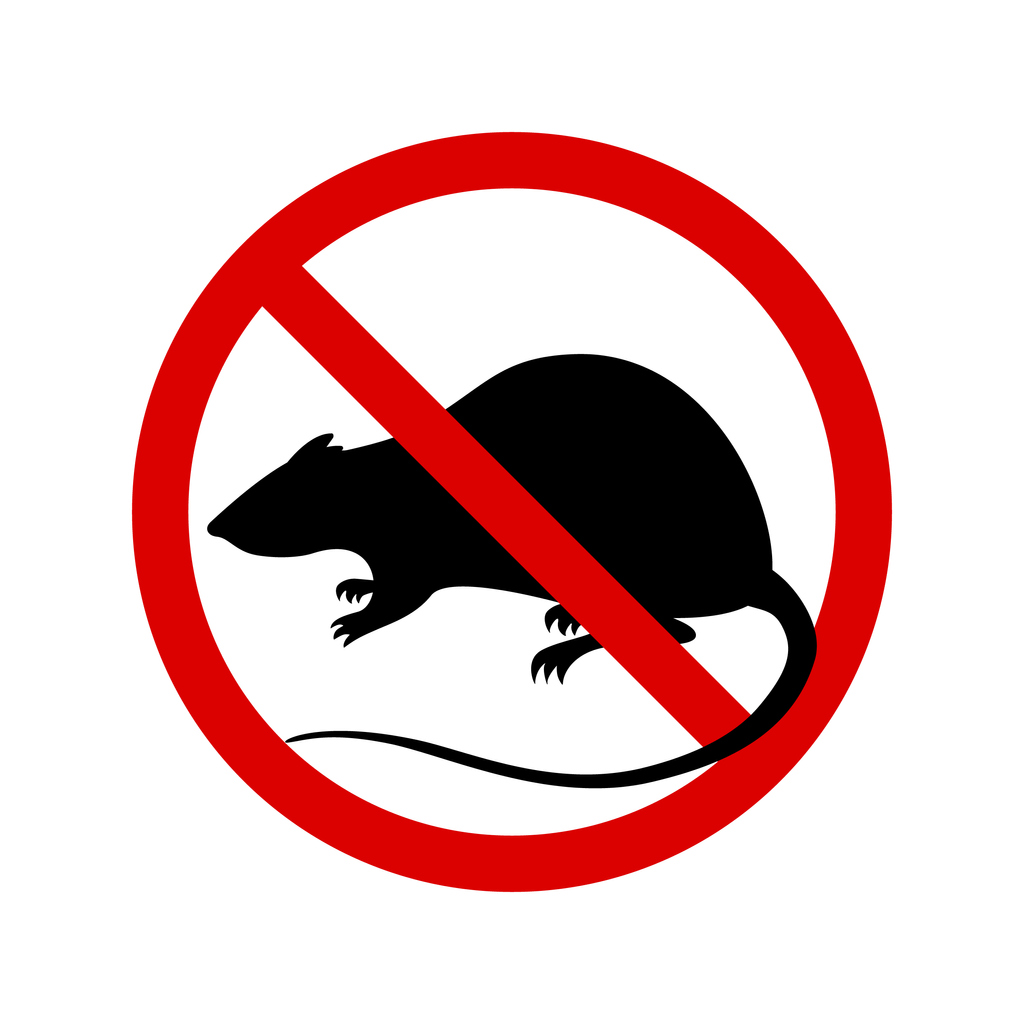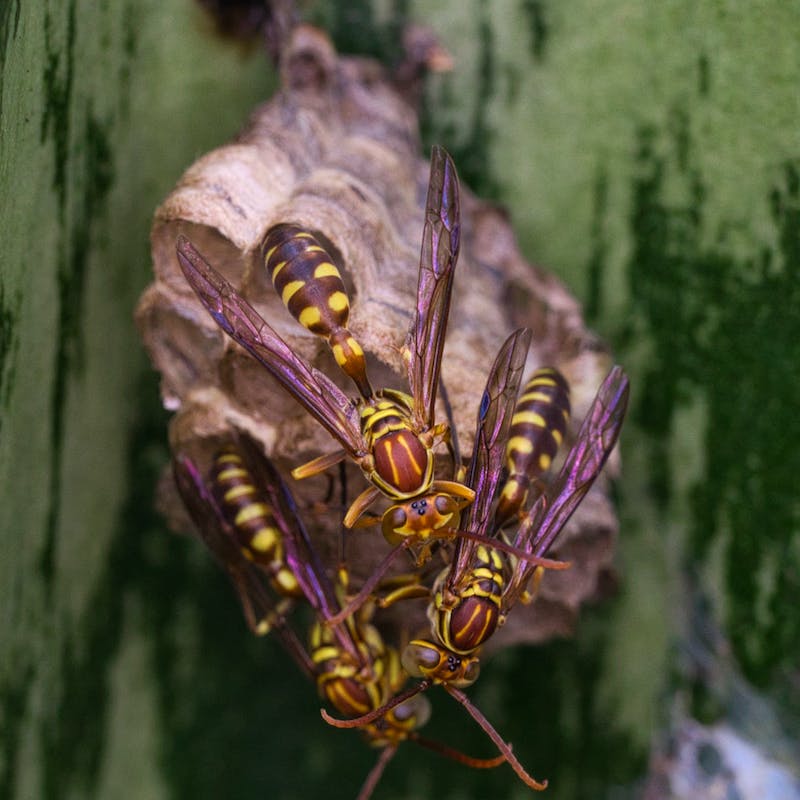
22 Jun 2023 | Trifecta Pest Solutions (UK) Ltd
When the summer rolls around, so do the wasps - this is just something we come to expect in the UK and these critters are infinitely more terrifying and disliked than their bee cousins. They are disruptive, angsty, and pack a punch with their sting.
So how do you deal with them? In this guide, we look at how to identify a wasp nest in your home or garden, the potential dangers they pose, and how to get rid of a wasp nest so you can enjoy the warm weather in peace.
How to Tell if You Have a Wasp Nest?
When looking at getting rid of a wasps nest, the first step is identifying it. You have to be sure that there is indeed a nest and not just a few rogue wasps flying around your garden. Telltale signs that show the presence of a wasp nest include:
- The presence of multiple wasps in your house or garden
- Clicking and scratching sounds inside your walls or garden shed
- Damage to wooden furniture outdoors
- Wasps inexplicably inside your house when the doors and windows are shut
The simplest sign is the presence of many wasps either in your house or garden. If you keep the windows and doors shut in your house but still see wasps, this points to a nest being in your walls or attic. This will be accompanied by clicking and scratching sounds as the wasps busy themselves with their chores.
Outside, you may notice wasps following a set path or flying to a specific location like your garden shed. They can also damage wooden furniture as they love to use this as the building material for their nest.
The nest itself looks like a beige or light brown wrinkled balloon with multiple layers like an orange peel. There will be a single entry and exit point and if you looked inside, you would see a honeycomb structure.
When is it Safe to Remove a Wasp’s Nest?
If the nest isn’t in a troubling position or somewhere you often walk it could be OK to leave it. Once summer turns into autumn and temperatures drop the wasp colony will decline and many will die off and this can be a better time to safely remove it.
If it is in a difficult spot where people frequently pass then the best time is at night. During the night, wasps are much more docile, have slower reactions, and are less active. This greatly reduces the chance of being stung and aggravating the wasps.
How to Remove a Wasp’s Nest?
I don’t recommend trying wasp pest control yourself as it can be dangerous. Instead, calling a pest control company is preferable. Regardless, the following are four potential ways of getting rid of a wasps nest:
Pesticides
Wasp-killing pesticides in an aerosol form are the easiest and quickest way. Simply find the opening of the nest, follow the instructions on the can, and spray inside the nest. Make sure that children and pets are kept away during and after this process.
Smoke
Smoke can be used to deter wasps and scare them away from a nest hanging on a tree. Lighting a fire directly below the nest will agitate them, affect their senses and cause them to flee. However, they can become aggressive so you should keep a wide berth when monitoring the fire.
Cover Up
It is possible to simply cover the nest up with a bin liner and then relocate it. Protective gear must be done when you do this as you have to get right up close to the nest. It is best to do this at night when the wasps are docile and make sure you have a relocation spot pre-planned.
Insecticidal Dust
When looking at how to get rid of a wasp nest, insecticidal dust works great for ground nests. The dust will penetrate the nest better than an aerosol and reach further as you often can’t tell how deep the nest is.
Dangers of Removing a Wasp Nest Yourself
There are many ways to remove a wasp nest but it can be dangerous trying to do any of these methods yourself. The main danger is if you disturb the wasps and cause them to become aggressive and attack which they are likely to do.
No one wants to be stung - it can be painful but in rare cases, it can also result in an allergic reaction. It is estimated that European Wasps cause an allergic reaction to 1 in 10 people who are stung twice so stirring a nest will greatly increase the chances of this happening.
Need Help Removing Your Wasp Nest?
As you can see, it is potentially hazardous to try and remove a wasp nest yourself and I recommend seeking professional help from a pest control company instead. Specialist pest control companies have the correct protective gear and know the safest and quickest ways to get rid of a wasp nest. You can relax in the knowledge that the problem is taken care of, and not put yourself in harm's way which is always a bonus!


